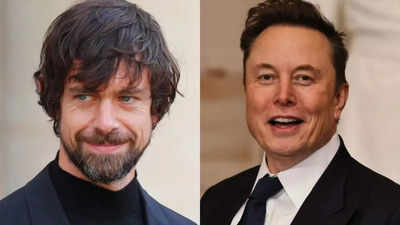Two of Silicon Valley’s most influential figures, Jack Dorsey and Elon Musk, on Friday referred to as for the abolition of all mental property (IP) legal guidelines. Dorsey posted “Delete all IP legal guidelines” on X, to which Musk replied, “I agree.”
Their remarks come amid rising world backlash towards AI corporations over how they use copyrighted materials.
AI corporations declare their fashions don’t straight copy content material however as a substitute study underlying patterns from the information. Nevertheless, lawsuits argue that these fashions typically produce outcomes that carefully resemble the unique works, elevating severe issues about copyright infringement.
Most lately, the Studio Ghibli filter of ChatGpt, and later its creators, are being criticised for freely giving free of charge one thing pains takingly hand drawn by Hayao Miyazaki, co-founder of the Japanese Animation Studio, who had specified a number of years in the past that he doesn’t need his model reproduced digitally.
What Is IP?
Mental Property consists of copyrights, patents, and logos. It’s designed to guard creators and inventors from unauthorised use of their work. However with generative AI, traces are blurring.
The AI pushback
OpenAI and Google argue that limiting entry to copyrighted information will gradual innovation. Their submissions to the White Home’s AI coverage plan talked about falling behind international locations like China, the place rules are fewer.
Sam Altman of OpenAI has referred to as this the “Intelligence age,” and claims strict IP legal guidelines may hinder America’s safety and prosperity. Google echoed this view, warning that Europe’s stricter fashions of regulation shouldn’t grow to be the worldwide commonplace.
Authorized actuality
Lawsuits towards main AI corporations are rising, with The New York Instances being one among a number of high-profile complainants.
Courts are taking additionally a harder stance. Latest rulings, like within the Thomson-Reuters case, recommend that AI-generated content material can nonetheless hurt the marketplace for unique work.
A notable case in India includes a lawsuit the place main publishers comparable to Penguin Random Home and Bloomsbury, have filed a case to cease ChatGPT from accessing their content material. OpenAI can also be contesting a copyright case in India filed by ANI, arguing that Indian courts lack jurisdiction because the firm operates out of the US with abroad servers.















